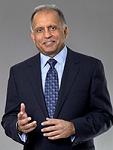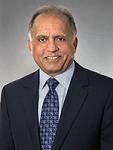Soulful Leadership
Accredited Consulting Service for Dr Bhalla Ph.D. MBA BA Accredited Senior Consultant (ASC)
Executive Summary Video
The Appleton Greene Accredited Consultant Service (ACS) for Soulful Leadership is provided by Dr Bhalla and provides clients with four cost-effective and time-effective professional consultant solutions, enabling clients to engage professional support over a sustainable period of time, while being able to manage consultancy costs within a clearly defined monthly budget. All service contracts are for a fixed period of 12 months and are renewable annually by mutual agreement. Services can be upgraded at any time, subject to individual client requirements and consulting service availability. If you would like to place an order for the Appleton Greene Soulful Leadership service, please click on either the Bronze, Silver, Gold, or Platinum service boxes below in order to access the respective application forms. A detailed information guide for this service is provided below and you can access this guide by scrolling down and clicking on the tabs beneath the service order application forms.
Bronze Client Service
Monthly cost: USD $1,500.00
Time limit: 5 hours per month
Contract period: 12 months
SERVICE FEATURES
Bronze service includes:
01. Email support
02. Telephone support
03. Questions & answers
04. Professional advice
05. Communication management
To apply – CLICK HERE

Silver Client Service
Monthly cost: USD $3,000.00
Time limit: 10 hours per month
Contract period: 12 months
SERVICE FEATURES
Bronze service plus
01. Research analysis
02. Management analysis
03. Performance analysis
04. Business process analysis
05. Training analysis
To apply – CLICK HERE
Gold Client Service
Monthly cost: USD $4,500.00
Time limit: 15 hours per month
Contract period: 12 months
SERVICE FEATURES
Bronze/Silver service plus
01. Management interviews
02. Evaluation and assessment
03. Performance improvement
04. Business process improvement
05. Management training
To apply – CLICK HERE
Consultant profile
Dr Bhalla is an approved Senior Consultant at Appleton Greene and he has experience in marketing, customer service and globalization. He has achieved a Doctor of Philosophy, a Master of Business Administration and a Bachelor of Arts (Hons). He has industry experience within the following sectors: Technology; Digital; Banking & Financial Services; Consumer Goods and Healthcare. He has had commercial experience within the following countries: United States of America; India; Singapore and South Africa, or more specifically within the following cities: Washington DC; New York NY; Gurgaon; Singapore and Johannesburg. His personal achievements include: championing human-centric leadership; digital transformation of customer experience; delivering action-oriented corporate training; implementing product and service innovation and leading high-performance global teams. His service skills incorporate: human-centric leadership; digital transformation; customer experience; corporate training and product innovation.
To request further information about Dr Bhalla through Appleton Greene, please CLICK HERE.
Executive summary
Soulful Leadership
Developing and nurturing leaders and leadership is paramount for organizations for several reasons. Two stand out – survival and prosperity. The quality and effectiveness of leadership significantly determines whether organizations will have a future, and whether that future will be more prosperous than the present. As leaders plot and chart a course to these more prosperous tomorrows, they are tested, and tested repeatedly. The challenges leaders face in the pursuit of survival, growth, and market leadership test the brilliance and smartness of their minds – their knowledge, their technical and managerial skills and competencies. But they also test something more enduring and fundamental to leadership success – they test leaders’ souls; the wisdom, humanity, and judgment leaders bring to their roles. Traditional leadership training focuses on making leaders smarter, thereby making them more adept at meeting the first type of challenge. But it bypasses the inner, more vital aspect of leaders’ humanity and character, aspects which ultimately have a greater bearing on the survival of prosperity of organizations. It is this hole that this program on “Soulful Leadership” is designed to fill.
Soulful Leadership is defined as: “Purposeful leadership journeys that are guided by an inner awakening for increasing the ongoing prosperity and wellbeing of all – the organization, people (employees, customers, communities and cultures), and the planet (health and resources), not just the leaders.” It is indispensable in today’s Volatile, Uncertain, Complex, Ambiguous (VUCA) world. VUCA events and challenges rarely show up as “either-or” choices; “right vs. wrong” decisions. Instead, they invariably show up as “and” decisions, demanding leaders choose between “right and right.” Today’s leaders, for example, can’t just be idealists or realists; they have to possess the capacity for both and know when to be what. Short-term thinking is not always bad, and long-term thinking is not always good, leaders have to decide when to engage in short-term thinking and when to engage in long-term thinking. Additionally, the choice is not between empower or control, the challenge is when to empower and when to control; when to negotiate when to dictate; when to take a stand and when to straddle fences.
In such an environment, what is vital and critical to help leaders keep moving forward, help them maintain their and their organization’s forward momentum, is an inner awakening, which connects them with their own humanity – who they are, what they really stand for, what they are willing to fight for – so they can make smarter and wiser choices. This program on Soulful Leadership is “unique,” because it relies on the world’s great literatures, notably immortal poems, novels, and stories, to act as a mirror in which program attendees can see themselves and learn more about themselves and their own humanity. They can then embrace what they think is working well for them and change what isn’t. An effort that will certainly result in more meaningful work, a more engaged workforce, and a more satisfied workplace.
Service Methodology
Service methodology comprises 4 distinct steps.
The first step is a pre-consulting client engagement with key company executives to understand the key focus of leadership training and development delivered in the past, and being currently delivered. The focus of this step is to understand history, momentum, recipient satisfaction with the training received, and company aspirations in terms of fostering and nurturing current and future leaders. This step will also assess company culture and values to assess factors likely to enable, or inhibit, the delivery of the Soulful Leadership program.
The second step will use inputs from step 1, and will establish a solid foundation for understanding the dynamics and DNA of Soulful Leadership. This foundation will be culled from four areas vital for soulful leadership. First, aspects of the leader as a person. Next, how the leader thinks and views the world. Third, on how the leader acts, decides, and chooses. And lastly, how leaders relate to the world that exists beyond their own world – people, communities, and the planet. The purpose here is to hold up a mirror to the attendees, so they can look within, and connect with their own humanity – who they are, what they stand for, what they are willing to fight for. A deeper and more vibrant understanding of one’s own humanity is vital for leaders to transition from a mindset that overvalues “smart thinking,” to a mindset that also values “inner wisdom,” so leaders are more aware of the consequences of their own decision making – who wins, who loses; who is sacrificed for attaining leadership goals and who is not. This foundation will be laid with the help of world’s great literatures, notably immortal poems, novels, and stories, so that program attendees can perceive themselves in ways they haven’t before.
In the third step, participants will use a “plus-delta” framework for reflecting on, and applying the Soulful Leadership concepts and ideas discussed in step 2. The goal is to help attendees become more aware of their own equation with Soulful Leadership, so they can begin striving to become more effective soulful leaders. The “plus” effort will identify areas in which attendees perceive themselves as effective, or capable, soulful leaders, and will focus on how they can become even better. The “delta” effort will help attendees think about ways in which they can become more effective soulful leaders. Initially, attendees will work on this framework individually. This will be followed by brainstorming and group discussion.
The fourth step will focus on cultivating an organization-wide environment and culture friendly to soulful leadership, and capable of sustaining it. Attendees will use a three step framework – think about it, talk about it, act on it – to brainstorm ways in which the ideas and practice of soulful leadership can be disseminated and practiced throughout the organization.
Service Options
Companies can elect whether they just require Appleton Greene for advice and support with the Bronze Client Service, for research and performance analysis with the Silver Client Service, for facilitating departmental workshops with the Gold Client Service, or for complete process planning, development, implementation, management and review, with the Platinum Client Service. Ultimately, there is a service to suit every situation and every budget and clients can elect to either upgrade or downgrade from one service to another as and when required, providing complete flexibility in order to ensure that the right level of support is available over a sustainable period of time, enabling the organization to compensate for any prescriptive or emergent changes relating to: Customer Service; E-business; Finance; Globalization; Human Resources; Information Technology; Legal; Management; Marketing; or Production.
Service Mission
Billions of dollars are spent globally on leadership training and development, with the US alone spending between $14 to $50 billion annually. Regrettably, these enormous investments have not resulted in glittering gains. News of leadership crises and failures involving high profile global giants like Wells Fargo, VW, and BP routinely flood the news. Within organizations the news is no better. Trust and confidence in leaders and leadership is at an all time low, and employee dissatisfaction and lack of engagement with work and the work place is at an all time high. Words like “soulless” and “dehumanizing” are used frequently by employees around the world to describe their organizations and work environment.
Difficult times demand fresh approaches, new narratives tailored to the circumstances surrounding us. This program on “Soulful Leadership” is a new narrative on leadership. It leads us away from a narrow descriptive focus on what leadership is, to a wider and broader focus on what leaders and leadership should stand for – a platform for increasing the wellbeing and prosperity of the greater many, not just a privileged few. It advocates focusing on the inner aspects of leaders, and learning from new teachers who have the ability to bring leaders face-to-face with their own humanity – who they are, what they stand for, and what they are willing to fight for. Because the greatest asset of leaders is not just the brilliance of their minds, but the wisdom of their souls – what’s within leaders that guides what’s in their minds.
Dr. Bhalla is an experienced leadership, marketing, innovation, and strategy professional with over thirty years of global experience as a multinational corporate executive, business consultant, entrepreneur, academic, and executive education specialist. During his professional tenure he has worked with companies in over thirty different countries on five different continents. His rich and varied experience working with diverse functional groups within companies operating in diverse cultures coupled with his academic and commercial credentials is a powerful asset in enabling companies innovate and implement new leadership narratives. Known as a thinker-doer, he inspires clients to adapt and improvise by listening, engaging, and responding differently to their internal and external environments than they have in the past. He uses a variety of facilitation, consulting, teaching and coaching approaches in his programs. With his passion for application of cutting edge knowledge to real life decision making, he knows how to encourage clients to ask and solve the right questions that have the potential of enhancing their future well being and prosperity.
Service objectives
The following list represents the Key Service Objectives (KSO) for the Appleton Greene Soulful Leadership service.
- Reimagining Leadership
The purpose of this service objective is to help companies reimagine the role of leaders and the goals of leadership. Today’s organizations are fascinated with leaders and leadership. So it is not surprising that the two words have become imbued with meanings and interpretations that actually distort their fundamental nature and purpose. For instance, lately, leadership has become more of a morality tale. There is excessive concern with the virtuous aspects of leaders – empowerment, authenticity and charisma – and correspondingly less concern with what leaders should be doing. There is also excessive attention paid to the personality aspects of leaders – personality tests and profiles – and less attention to how work actually gets done, and what leaders need to do to further existing histories and write new chapters for future histories of their organizations. Consequently, it is important to help attendees re-imagine leaders and leadership. Leaders are not necessarily heroes. Frequently, they are ordinary people who are asked to play a role for a finite amount of time. During this time, they are charged with moving their organizations forward toward some desired strategic destination. The personal assets that leaders bring forth to navigate these leadership journeys are critical, and will form the core of reimagining of leadership and leadership roles. In keeping with the essence of the program, this reimagining will be fueled by appropriate examples from poetry and literature. Several examples of real life leaders will be provided to help attendees acquire a different perspective on who leaders are and what their roles should be. This will set the stage for the service objectives that follow. - Soulful Leadership
This service objective will help lay a foundation for clients to understand the dynamics and DNA of soulful leadership. Key concepts and ideas that give Soulful Leadership its unique character will be presented and discussed. The discussion will be concrete, not abstract. Specific examples from the day to day lives of organizations, involving routine and non-routine decisions, like job promotions, use of robots instead of human beings, and sponsoring community programs in tough economic times will be used to establish the idea and practice of soulful leadership. Specific factors enabling or inhibiting the practice of Soulful Leadership will also be discussed. These factors will be drawn from three main categories – who the leader is, how the leader thinks, and how the leader acts. Consideration will also be given to the environment comprising of communities, cultures, and the planet to illustrate how soulful leadership can be conceived and implemented. In keeping with the essence of the program, the ideas and practice concerning Soulful Leadership will be appropriately supported and illustrated with examples from poetry and literature. Examples of real life leaders who practice, or have practiced Soulful Leadership when they were active will be used to inspire and inform program attendees. Lastly, this foundation will serve as the basis for further exploring key dimensions of Soulful Leadership in the service objectives that follow. - Inner Awakening
The purpose of this service objective is to help clients focus on a vital, but neglected aspect of successful leadership. Traditional leadership training has paid scant attention to the inner aspects of leaders. It has focused instead on leaders’ heads, attempting to make them smarter and instilling in them relevant task related skills and competencies. It has also focused on designing appropriate incentives and regulations for promoting the “right” kind of behavior. But in today’s content rich world, these types of competencies can be readily purchased and don’t offer a sustainable source of competitive advantage. Neither can a focus on incentives and work processes lead to engaging and satisfying work places. What can’t be bought, and what differentiates successful leaders from the not so successful ones is what lies within them. The commitment, the caring, the passion, the discipline, the dedication to constantly learn, grow, and become a better human being, and therefore a better leader, can’t be bought. But it can be nurtured through an inner awakening, which motivates leaders to understand who they are, so they can make not just smarter, but also wiser, more enlightened choices. This inner awakening is the bedrock of Soulful Leadership. In its absence leadership would remain a vehicle for the self-serving interests of the powerful and privileged not the platform it should be for the wellbeing and prosperity of the many. Here again, as in previous service objectives – and the ones to follow – the dynamics and benefits of inner awakening will be illustrated and supported by examples from immortal poems and literature, and from case-studies of past and current leaders. - Sacrifice Framework
The purpose of this objective is to emphasize the importance of one of the most vital elements of soulful leadership. Leaders are appointed to act; doing nothing is not an action. The bulk of leader’s actions revolve around generating forward momentum for their organizations and themselves. This forward momentum is usually toward what leaders – and hopefully, the organization – considers a better future. But each time leaders act, they have to sacrifice something, or someone, or someone’s interests. For example, leaders can sacrifice people, resources (which includes the planet), or some aspect of themselves; usually it’s some combination of the three. It is impossible not to do so, because pleasing and satisfying everybody is not feasible. Since who to sacrifice, how much, and when are not trivial decisions, Soulful Leadership requires leaders to be guided by an inner awakening so that no one group of people or resources are sacrificed disproportionately for the gain of a privileged few. Historically, leaders have often used their power and privilege to sacrifice others – including resources – for their own wellbeing and prosperity. But Soulful Leadership sees it differently. It considers leadership as a privilege of a different kind, as a force of doing good, and a platform for increasing the wellbeing and prosperity of the greater many. The discussion on the sacrifice framework will also be illustrated and supported by examples from poetry and literature, and from case-studies of leaders who have exhibited an uncommon awareness of the sacrifices inherent in their own decisions, and modeled exemplary behaviors concerning the sacrifice framework. - Implementation Dynamics
New narratives and ideas benefit leaders and the organizations they lead only when they are implemented. Merely talking about them accomplishes little. Consequently, the purpose of this objective is to present and discuss a three-step framework for disseminating the idea and practice of Soulful Leadership throughout the organization, so it becomes an integral part of the organization’s operating culture. The first step in the framework is to “Think about it.” This step enables attendees to reflect individually on the various aspects of Soulful Leadership and on their own equation with it, so they can determine where they could adopt and embrace it more fully. The second step, “Talk about it,” transfers this individual assessment to a group discussion on how and where Soulful Leadership can and should be implanted. The third step, “Act on it,” translates the brainstorming from step 2 to an action agenda, with the emphasis being on exhibiting behavior that will lead to Soulful Leadership becoming an integral part of the operating culture and DNA of the organization. Collectively, the three steps should bring about a greater awareness, appreciation, and implementation of the ideas and practice of Soulful Leadership.
Testimonials
Deloitte
”Dr. Bhalla designed and delivered two sessions on Leadership (Trusted Business Advisor) for our senior managers through his association with ISB. Senior Managers at Deloitte play a pivotal role in the organizational strategy, direction, and success. They form the leadership pipeline and are future Partners and Directors of the firm. Given their significant role and responsibility, their development is a strategic and critical function in the firm. Dr. Bhalla was extremely professional and easy to work with during the design and delivery of these programs. He took time to understand our context and needs in detail. This time spent upfront helped him design a very focused program for our senior managers. The program delivery was very interactive and highly effective. Dr. Bhalla was able to connect with all participants through his delivery style and relevant content. The post program survey was a testament to the program effectiveness with most participants agreeing that it will have a positive impact on their work.”
eknow
”Dr. Bhalla facilitated yet another outstanding leadership training workshop. His theme this time was “Leadership Learnings from Immortal Poems” and he once again demonstrated his passionate and captivating presentation style in bringing his subject matter to life. One of his key assertions was that “the most important asset of leaders is not their minds but their souls” and that “the immortal poems can help awaken them.” He also made the case for leaders to “bring their head and their heart into greater alignment.” Dr. Bhalla showcased his own soulful leadership and powerful facilitation skills to actively engage our group in a very stimulating dialog.”
Cooley, LLP
”Dr.Bhalla is an energetic, positive speaker with a unique approach to leadership training. He leads his audience on a journey of self-discovery through inspirational poetry. He challenges leaders to bring their head and heart into alignment thereby bringing their best self and most effective solutions to the tasks of leading.”
Capital One
”Dr.Bhalla invests time in open listening and observation, and quickly absorbs critical information and details. Once having formed thoughts and opinions, Dr.Bhalla is a thoroughly engaging communicator, whether addressing a large group or an individual. He effectively shares his ideas and recommendations with a personalized and customized approach that is always on target, leaving a listener inspired! A few examples follow. By leveraging Dr.Bhalla’s professional expertise at integrating qualitative and quantitative data into insightful findings, I was able to bring added value to my larger team. This greatly benefited my organization from a business perspective, and allowed me to grow personally. Dr.Bhalla also worked effectively with senior leadership, and staff at all levels, to collaborate and advise on effective solutions to problem issues as an internal advisor. His sought-after counsel was a key input in organizational decisions.”
iPlaceUSA
”Our company provides recruiting services for American corporations from our internally operated offshore recruiting center in India. Our business faces a number of challenges and not just related to geography and difference in time zones. Getting our Indian managers to perform as trusted business partners to our American clients is very challenging. Yet, it is imperative we achieve that goal if we are to meet or exceed our corporation’s extremely ambitious 40 percent annual growth objective. Dr.Bhalla was able to size up our business challenges very quickly from multiple perspectives – motivational, operational, and cultural. His work with our executive team has helped us think differently about how to get our managers to align their personal goals with the company’s goals of serving our clients, and achieving a service mindset that will enable our clients and our company to increase sales and profitability. Dr.Bhalla’s approach has been highly practical, with a constant emphasis on rapid implementation to improve both operations and customer intimacy.”
More detailed achievements, references and testimonials are confidentially available to clients upon request.
Industries
This service is primarily available to the following industry sectors:
Technology
Technology is all pervasive and omnipresent in today’s world, and is radically reshaping all aspects of work and life from everyday essentialities of cooking, cleaning, transportation, and security to discretionary needs, such as healthcare, education, and entertainment. In the business world, technology is the backbone of the operations of virtually every business, and is also helping shape business strategy, and transforming business, revenue, and growth models. There was a time when technology was equated with the IT department and the hardware that sat on our desks and the software that helped us operate the hardware. Today, there is scarcely a department in any business that doesn’t use technology; even HR departments uses technology for managing and developing the human potential of their respective organizations. In fact, according to Gartner, marketing, not IT, will be the largest buyer of technology by 2018. Additionally, technology is also ubiquitous and essential to the day to day lives of typical customers. Cars today have more code than the computers of a few years ago…and there is no turning back. We live in an era of digital disruption, an era in which technology simultaneously creates and destroys customer value and customer experience. Consequently, it is important for companies to embrace technology and leverage it so that the value and experience they are providing to customers doesn’t become obsolete.
We use technology as if it were a common noun, it is anything but that. Cloud computing is technology, as is a common app, as is virtual reality, and as is IoT (Internet of things). However, each of them are a source of differentiated customer value and the basis of a differentiated customer experience. Which is why as the world of technology expands and dominates businesses and people’s lives, the all important question of value innovation will become even more relevant. As Steve Jobs likes to remind technology fanatics, “Smart companies don’t push technologies on unsuspecting customers, they work backwards. They begin by asking what great value and experiences they should deliver customers and then ask their engineers and designers to develop and deliver the targeted value and experience.” The number of trends that characterize technology – robotics, AI, nanotechnology, etc. – are too numerous to enumerate and discuss here. What is important to note though is that the world of technology is constantly morphing and converging, making it even more demanding for companies to stay connected with the customer and tackle issues related to value innovation.
Healthcare
Like education, entertainment, and a host of other industries, healthcare is in the throes of radical transformation. The industry is being asked to cater to exponentially increasing demand, which is both varied and complex, without passing on ever increasing costs to the end user. Not surprising therefore, that for several years now, the pharma companies have been urging themselves to migrate from being pill centric to becoming patient centric. Hospitals and other healthcare providers have been seriously rethinking their business models and moving away from treating diseases to championing wellness, and payers have been focused on pharmacoeconomics to balance costs and relative efficacy of alternate treatments. The number of moving parts grabbing the industry’s attention have increased dramatically in the past few years. New technologies, ranging from electronic health records, and digital tools for supporting diagnosis to telemedicine and robotics are being embraced aggressively to cater to the burgeoning demand. The changing demographics of the population, especially the needs of the elderly and the terminally ill, are posing fresh caregiving challenges, which are not easy to solve. Costs show no signs of abating, even as voices in support of individualized medicine are getting louder. Not only are new specialty drugs highly costly to produce, new viruses, like the Zika virus, and old standards like the flu, which have adapted and become more resistant to commonly available antibiotics, are stressing the system constantly, diminishing the ability of the healthcare system and industry to provide real, meaningful, timely, and tangible value at an affordable price.
Consequently, the industry is under greater public and legislative scrutiny. As more health care data, particularly financial, such as physician fees, comparison of insurance plan premiums, and payments by drug and medical device manufacturers to physicians and other care providers, becomes public, the power of the public to influence important medical policies and decisions is increasing, eroding the power and sole authority status of traditional gatekeepers, like physicians and hospitals. As the focus of the industry shifts from treatment to prevention and wellness, from individual health to social and community health, issues related to value innovation – customer value and customer experience – will become even more important. The word customer is used deliberately, because not everybody the healthcare industry will and should engage will be a patient. The system will need to experiment with new models of wellness, treatment, and payment to meet customer needs, so increasing healthcare value, which is both relevant and timely, can be delivered unaccompanied by soaring costs.
Banking & Financial Services
In the next three to five years, banking and financial services is likely to be disrupted more than any other sector. The nature of money is changing, as is the world of payments. It will not be cash, currency, and coins as we know it today. A host of innovations, like digital wallets, blockchains, cryptocurrencies, automation of cash and money flows, payment embedded in the Internet of Things, where Toyota cars pay for gas, and Nespresso machines pay for coffee, and Electrolux fridges pay for milk delivery are already beginning to rear their heads. In this fragmented environment where cash will largely be invisible and payments highly distributed, often in closed-loops, third party institutions like banks and financial services that currently handle cash and payment transactions will have to rethink their role and purpose; they won’t have an option.
Paradoxically, as the reach of technology grows and innovations radically transform the structure of banking and financial services, customers will increasingly want to be treated as unique individuals, and not as a nameless, faceless statistic in the company’s database. Customizing customer value and customer experiences will be at a premium, making value innovation even more critical. We are already getting a glimpse of this with the rise of big data and analytics. Banks and financial service companies are pursuing micro-segmentation zealously so they can convince their customers that they do care about them as individuals. Lastly, with the convergence of financial instruments, cash, credit, savings, investments, etc., customer loyalties will either be distributed across a number of players, or highly concentrated with one or two. In such an environment, value innovation will become even more critical for customer acquisition and retention, and therefore for the long term well-being of the organization.
Education
Even though all forms and levels of education are changing, this section will focus only on higher education (bachelor’s degree and above) delivered by colleges and universities throughout the world. Several factors are turning higher education on its head. On the demand side, the demographics of students, especially in terms of age, income, and diversity has changed and is unlikely to reverse. Today’s students are likely to be older, are more likely to come from poorer families, and from ethnic backgrounds where parents may not have gone to college. They also have different attitudes and expectations, notably, they have an unrealistically high opinion of their own abilities, and are not merely interested in learning – they want a variety of entertaining experiences during their tenure at college. The changing mix and experience expectations of students will continue to pose challenges for colleges and universities. Additionally, not all students want to be full time students, or be physically present in the class room. Part-time, evening, and weekend students are definitely on the rise, as are those who want to obtain their degree in digital and online forums.
On the supply side the number of institutions offering degrees, especially those popular with recruiters, like MBA, have increased dramatically. In India, for example, in the 1980s there were only five major MBA degree granting colleges. Today, virtually every mid-to-large sized city can boast of colleges that grant an MBA degree. Privately owned colleges and universities that operate for profit, and smaller community colleges that cater to students in specific geographies has also increased. However, quality of education has not kept pace with the proliferation of institutions globally; the biggest constraints being funding, quality of trained teachers, and the nature of the curriculum. Several colleges and universities are experimenting with technology in the class room to augment and boost student and teaching experience, with the hope of raising the quality and relevance of education delivered. More students participate in MOOCs, distance learning through online courses, and hybrid formats. While the jury is still out on whether technology will help bring greater student engagement and improve the quality of learning, questions concerning relevance of current higher education to the needs and demands of the changing workplace are being asked more frequently. Employers don’t believe colleges and universities are turning out the kinds of candidates they need, which is why globally, many companies, and governments, are investing in their own training and education programs. In a scenario like this an understanding and application of value innovation with its focus on customer value and experience is critical, if the system is to create positive value and experiences for all stakeholders – students, teachers, employers, and those providing the funds.
Entertainment
There was a time when entertainment took place at fixed times, in fixed formats, and at fixed venues – TV, radio, movie theaters, jazz clubs, music concerts, and comedy clubs. Customers took what they were offered and if they missed their favorite show they kicked cans and tried finding solace in profanity. That was truly a long time ago, the entertainment industry unrecognizable today. It changes every time a new song is released – Uptown Funk; every time a new video is released – Gangnam Style; every time a new genre takes off – reality TV, hip hop rap. Today, entertainment is truly a multidimensional, multidirectional collaboration between content producers, content providers and content consumers. Any and every content can be entertainment; the old brick walls between information, education, and pure entertainment have crumbled. TED talks are entertainment, as are improve comedy shows, as are funny home videos on YouTube. Further, this content can be consumed anywhere, anytime, on any screen, frequently without payment. Additionally, the content is often consumed in ways the originator had not intended – Harry Potter theme parks and Lego blocks, or Star Wars light sabre toys, or a mash up of history and science fiction as video games.
The proliferation of devices and venues, traditional TV sets, smart TVs, smart phones, tablets, TV screens at airports, in bars, lounges, and waiting areas, such as hospital and hotel lobbies, accelerates the change the industry and customers are experiencing. Even buildings and walls can be a delivery channel for entertainment – a trip to the Ginza district in Japan, or to Times Square in New York can attest to that. Add to that the ability to watch anything asynchronously and you have an entertainment landscape that rarely stands still. Take the example of Hulu. It was born out of the YouTube category, where people flocked for quick snippets of video. Now, however, a whopping 73 percent of Hulu-goers use the service specifically for watching television shows. In this panoramic landscape it is equally difficult to say what competencies qualify a company to be called an entertainment company. Ostensibly, Microsoft, makers of Xbox is an entertainment company. Hallmark started off as a greeting card company, but is an entertainment company. Netflix started off as a DVD retailer, but is an entertainment company, as is Amazon. In this dynamic environment, of constantly evolving technologies and content, where entertainment is the outcome of active collaboration between content producers, device manufacturers, and delivery companies (Comcast), and the meaning and value of which is co-created with customers, who pick the time, venue, and vehicle of consumption, value innovation – creating, delivering, and innovating the right value and experience for the right customer at the right time takes on even greater importance.
Locations
This service is primarily available within the following locations:
San Francisco CA
The Bay area is an umbrella term for a geographical area that encompasses the major metropolitan areas of San Francisco, San Jose, and Oakland, and is often referred to as Silicon Valley, the epicenter of technology, disruptive innovation, and bold entrepreneurship in America. In fact, the term Silicon Valley, is generally used as a synecdoche for the American high-technology economic sector, and has become a synonym globally for leading high-tech research and enterprises, inspiring similar named locations, research parks, and technology centers with a disruptive innovation culture. Silicon Valley is home to many of the world’s largest high-tech corporations, thousands of startup companies, and some of the most famous universities in the world, like Stanford. The list of hi-tech companies headquartered there, or with origins in the area, is a ‘who’s who’ of the industry: IBM, Hewlett-Packard (HP), VMware, Ford Research and Innovation Center, Palo Alto Research Center (PARC), Space Systems/Loral, Tesla Motors, Ning, IDEO, Skype, Palantir Technologies, Google, Facebook, Logitech, Intuit, Pinterest, and PayPal. It is also the leading hub and startup ecosystem for high-tech innovation and development, accounting for one-third of all of the venture capital investment in the United States. And with technology fueling significant transformation in a number of sectors, such as healthcare, education, energy, transportation, and entertainment, the future of Silicon Valley as a key engine of economic growth and prosperity is extremely bright. Value Innovation is especially relevant in this region since true growth only occurs once the benefits of novel technologies are commercialized and passed on to customers.
New York NY
Alternately called “the city that never sleeps,” “the big apple,” and the “cultural capital of the world,” New York city is a global hub of international business and commerce. In 2012, New York City topped the first Global Economic Power Index. Home to Wall street, The New York Stock Exchange and Nasdaq, the city is a major center for banking and finance, retailing, world trade, transportation, tourism, real estate, new media as well as traditional media, advertising, legal services, accountancy, insurance, theatre, fashion, and the arts in the United States. Many Fortune 500 corporations are headquartered in New York City, as are a large number of foreign corporations. One out of ten private sector jobs in the city is with a foreign company. New York City has been ranked first among cities across the globe in attracting capital, business, and tourists. It is these features of New York that repeatedly earn it a high ranking as America’s leading cities of the future. Additionally, real estate is a major force in the city’s economy, and the total value of all New York City property was assessed at US$914.8 billion for the 2015 fiscal year. As are the advertising, PR, and publicity sectors. Some of the world’s largest advertising agencies, like Omnicom Group and Interpublic Group are based in Manhattan, as is the world’s premier PR company, PR Newswire. Other important sectors include hospital health care, medical research and technology, non-profit institutions, and universities, such as New York and Columbia University. Manufacturing, in decline a few years ago is showing resurgence, as is the city’s garment industry. SME’s are also on an upward trend especially in the information and service sectors. Food processing is another sector that is extremely vibrant in New York, with chocolate being New York City’s leading specialty-food export; Godiva, one of the world’s largest chocolatiers is headquartered in Manhattan. Home to the United Nations Headquarters, New York is an important center for international affairs. Hundreds of languages are spoken in the city, and many of the its districts, landmarks, museums and parks are well known throughout the world including Times Square, the Broadway theatre district, Wall Street, Chinatown, the Empire State and Chrysler Buildings, Statue of Liberty, Metropolitan Museum of Art and Bronx Zoo, and attract millions of tourists throughout the year. For these reasons New York will continue to dominate the consciousness of businesses and customers globally. Businesses operating or beginning operations here can truly benefit from the application of value innovation principles.
London UK
London is very similar to New York and to Tokyo. The big three are known as often referred to as the “command centers” of the global economy. In 2014, Forbes rated London as the most influential city in the world. The city has also been voted as the Europe’s city of the future. The business climate is robust and inviting. It is seen by the World Bank as fourth in the world for ease of doing business. There are plans for growth that will make it even easier to conduct business. Since hosting the Olympics in 2012, London has a new energy about planning, cutting corporate taxes, investing in infrastructure—especially housing and transportation—and eliminating regulation that hinders business growth. London has over 480 overseas banks, more than any other city in the world; Canary Wharf is one of the biggest financial centers in Europe. Over 85 percent (3.2 million) of the employed population of greater London works in the services industries. The City of London is home to the Bank of England, London Stock Exchange, and Lloyd’s of London insurance market. Over half of the UK’s top 100 listed companies (the FTSE 100) and over 100 of Europe’s 500 largest companies have their headquarters in central London. Over 70 per cent of the FTSE 100 are within London’s metropolitan area, and 75 per cent of Fortune 500 companies have offices in London. Along with professional services, London has a high concentration of media companies are concentrated in London; media distribution is London’s second most competitive sector. The BBC is a significant employer, while other broadcasters also have headquarters around the City. Many national newspapers are edited in London. London is also a major retail center and in 2010 had the highest non-food retail sales of any city in the world. Construction and transportation are also growing industries – the need for office space, buildings and infrastructure continues, as well as does attendant real estate investment opportunities. In terms of transportation, besides periodic updating of infra-structure, there are plans for cross rail construction in the city as well as expanding airport capacity. London and the U.K.in general have entered the tech world with both feet. Its tech cluster of businesses is home to one of the largest concentrations of small, fast-growing digital technology companies in Europe. Development of this tech hub is a priority for London. In addition, there is significant support for high-growth and innovative small and mid-sized firm to export and take advantage of opportunities in emerging markets. A growing number of technology companies are based in London notably in East London Tech City, also known as Silicon Roundabout. For all these reasons, London and the businesses operating within it, are fertile ground for the application and implementation of value innovation processes.
Washington DC
Washington DC is the political heartbeat of USA, and is often referred to as the most powerful city in the world. Government organizations and agencies though are not the only major stakeholders in the city. Associations, not-for-profit organizations, volunteer organizations, and media companies also occupy a prominent place in the city’s economy. The greater Washington DC area is also the headquarters of large Fortune 500 corporations and companies, such as Fannie Mae, Lockheed Martin, General Dynamics, Northrop Grumman, Capital One, Computer Sciences Corporation, Marriott International Inc., Hilton Worldwide Holdings, Booz Allen Hamilton, Discovery Communications, Host Hotels & Resorts, and Gannett to name a few. And to some global companies like Audi, VW, and BAE. Part of the greater Washington DC area is extended to include the MD-355/I-270 corridor in Maryland. I-270 is sometimes called “DNA Alley,” and is the spine of Montgomery County’s biotech cluster; it is home to over 300 life sciences and biotech companies. The corridor also houses over 200 IT companies, and several state sponsored innovation and entrepreneurship incubators. Fairfax County and Northern Virginia are also part of the greater Washington DC area, and is home to more than 50% of the Fortune 500 companies located in this region. It is also home to some of the fastest growing communication, technology, education, and energy companies, like Iridium Communications, Comscore, Appian, Clarabridge, Strayer University, Touchstone Energy, and to some established giants, like Mars, Hilton Worldwide, Gannett, and Freddie Mac. Washington DC is also one of the most attractive tourist destinations in the world. Its museums and monuments, like the Smithsonian, the Air and Space Museum, Lincoln Memorial, and The Capitol are world famous and attract millions of visitors from around the world and from within USA. Given the geopolitical importance of the city as well as its thriving commercial economy, a large percentage of which is in the high growth sectors of the economy, make Washington DC an excellent market for the application and implementation of value innovation processes.
Bengaluru IN
Bengaluru, formerly Bangalore, once known as Pensioners Paradise is now known as the Silicon Valley of India. The city is described as “a gateway to new global frontiers” and “a harbinger of a new global labour force that works in cyberspace and that, like much of the world’s financial markets, operates beyond the reach of governments.” The city’s industrial development began with public sector undertakings in machine tools, aircraft building, electronics, space exploration, and science and technology research. These investments and institutions brought a highly talented workforce to the city, and made the city a hub of electronic industries, which in turn attracted several other medium and small manufacturers. It is this pedigree that has attracted some of the largest companies in the world, like Titan, HP, GE, IBM, and Texas Instruments to invest in Bangalore, and open global R&D and innovation centers there. Global Indian companies, like Infosys, also established their headquarters in Bangalore due to the highly educated and skilled workforce and economic climate. Bangalore today contributes the bulk of IT exports from India, and is universally recognized as one of the most innovative cities in the world. Consistent with its software, technology, and electronics heritage, the city boasts of several technology parks that are home to hundreds of large, mid-sized, and small companies. Additionally, Bangalore also has the highest concentration of biotech companies in India; more than 40% of India’s biotech companies are based here. Organizations like Institute of Bioinformatics and Applied Biotechnology, ICICI, and Biocon are recognized globally for significantly reshaping the contours of biotech science and research. The city attracts more US investment than any other city in India. The boom in technology, software, and biotech has also spawned a boom in lifestyle support industries like, hotels, consumer goods, golf courses, and most notably custom-built housing and entertainment. The city is also home to a large number of high net worth individuals; it ranks third after Mumbai and Delhi. For all the reasons presented above, Bengaluru, or Bangalore, is an extremely attractive market for the application and implementation of value innovation processes.
Clients
This service’s current clients or employers include:
Microsoft
Microsoft Corporation, is an American multinational technology company headquartered in Redmond, Washington, that develops, manufactures, licenses, supports and sells computer software, consumer electronics and personal computers and services. Its best known software products are the Microsoft Windows line of operating systems, Microsoft Office office suite, and Internet Explorer and Edge web browsers. Its flagship hardware products are the Xbox game consoles and the Microsoft Surface tablet lineup. It is the world’s largest software maker by revenue, and one of the world’s most valuable companies and brands. Founded by Paul Allen and Bill Gates on April 4, 1975, its mission is to empower every person and every organization on the planet to achieve more, by implementing its strategy of delivering best-in-class platforms and productivity services for a mobile-first, cloud-first world, with a goal of reinventing personal and business productivity and processes, through intelligent cloud platforms, and by creating more personal computing.
Citi
Citigroup Inc. or Citi is an American multinational investment banking and financial services corporation headquartered in Manhattan, New York City. Citigroup was formed from one of the world’s largest mergers in history by combining the banking giant Citicorp and financial conglomerate Travelers Group in October 1998. Currently in the top 5 of all bank holding companies by assets in the US, it was at its height, until the global financial crisis of 2008, the largest company and bank in the world as measured by total assets. Citi’s mission is to serve as a trusted partner to its clients by responsibly providing financial services that enable growth and economic progress. Its core activities are safeguarding assets, lending money, making payments and accessing the capital markets on behalf of its clients, which include both everyday people and some of the world’s largest companies. It also provides financing and support to governments at all levels, so they can build sustainable infrastructure, such as housing, transportation, schools and other vital public works.
Capital One
Headquartered in McLean, Virginia, Capital One is an American diversified bank that offers a broad array of financial products and services to consumers, small businesses, and commercial clients. A Fortune 500 company, Capital One has one of the most widely recognized brands in America. As one of the nation’s top 10 largest banks based on deposits, Capital One serves banking customers through branch locations primarily in New York, New Jersey, Texas, Louisiana, Maryland, Virginia, and the District of Columbia. It is also one of the largest credit card issuers in the USA, and was an early adopter of big data and analytics. The company has an enviable reputation for having built a preeminent brand on the back of market experimentation, micro-segmentation, tailored offerings, and targeted mailings to specific market segments and target markets.
GSK
GlaxoSmithKline is a science-led global healthcare company. The company researches and develops a broad range of innovative products in three primary areas of Pharmaceuticals, Vaccines and Consumer Healthcare. GSK has a significant global presence with commercial operations in more than 150 countries, a network of 89 manufacturing sites, and large R&D centers in the UK, USA, Belgium and China. The company’s mission is to help people do more, feel better, live longer. Its business is focused around the delivery of three strategic priorities which aim to increase growth, reduce risk and improve our long-term financial performance. These priorities are: grow a balanced global business, deliver more products of value, and simplify the operating model. Operating responsibly and ensuring that these values are embedded in their culture and decision-making helps GSK better meet the expectations of society.
Indian School of Business
Based in Hyderabad, India, The Indian School of Business (ISB) evolved from the need for a world-class business school in Asia. The founders, some of the best minds from the corporate and academic worlds, anticipated the leadership needs of the emerging Asian economies. They recognized that the rapidly changing business landscape would require young leaders who not only have an understanding of the developing economies but who also present a global perspective. The ISB is committed to creating such leaders through its innovative programs, outstanding faculty and thought leadership. Funded entirely by private corporations, foundations and individuals from around the world who believe in its vision, the ISB is a not-for-profit organization. With a strong emphasis on entrepreneurship, the impact of technology on commerce, and the emerging markets, programs at the Indian School of Business (ISB) focus on managing business in fast-evolving environments. It offers a unique one-year Post Graduate Program in Management (PGP), as well as short-duration Executive Education programs for middle and senior management (CEE), a part-time Post Graduate Program in Management for Senior Executives (PGPMAX), Management Program for Family Business (MFAB) for young business leaders of family businesses, a five-year doctoral-equivalent Fellow Program in Management (FPM), and a Post Doctoral Research Fellowship Program. ISB works closely with its associate schools, like Wharton Business School, London School of Business, and Northwestern University’s Kellogg School of Business, and leading academic area experts from around the world to create contemporary programs that apply Western concepts into the Asian context. ISB also has established and strong corporate and industry links which ensure that the program curriculum reflects global best practices, is international in perspective, and delivered according to world-class standards.
Indian School of Business – Click Here
Benefits
Management
- Corporate image
- Soulful workplace
- Socially responsible
- Employer reputation
- Employee trust
- Happier employees
- Loyal customers
- Competitive advantage
- Higher growth
- Higher profitability
Human Resources
- Talent management
- Employee trust
- Meaningful work
- Job satisfaction
- Committed workforce
- Happier employees
- Easier recruitment
- Engaged employees
- Less turnover
- Soulful workplace
Customer Service
- Customer delight
- Customer satisfaction
- Customer loyalty
- Customer trust
- Positive recommendations
- Higher acquisition
- Greater retention
- Fewer complaints
- Higher revenues
- Competitive advantage
Bronze Service
Monthly cost: USD $1,500.00
Time limit: 5 hours per month
Contract period: 12 months
Bronze service includes:
01. Email support
02. Telephone support
03. Questions & answers
04. Professional advice
05. Communication management
SERVICE DESCRIPTION
The Bronze Client Service (BCS) for Soulful Leadership provides clients with an entry level option and enables client contacts to become personally acquainted with Dr. Bhalla over a sustainable period of time. We suggest that clients allocate up to a maximum of 5 Key Employees for this service. Your Key Employees can then contact the consultant via email, whenever they feel that they need specific advice or support in relation to the consultant’s specialist subject. The consultant will also be proactive about opening and maintaining communications with your Key Employees. Your Key Employees can list and number any questions that they would like to ask and they will then receive specific answers to each and every query that they may have. Your Key Employees can then retain these communications on file for future reference. General support inquiries will usually receive replies within 48 hours, but please allow a period of up to 10 business days during busy periods. The Bronze Client Service (BCS) enables your Key Employees to get to know their designated Appleton Greene consultant and to benefit from the consultant’s specialist skills, knowledge and experience.
Silver Service
Monthly cost: USD $3,000.00
Time limit: 10 hours per month
Contract period: 12 months
Bronze service plus
01. Research analysis
02. Management analysis
03. Performance analysis
04. Business process analysis
05. Training analysis
SERVICE DESCRIPTION
The Silver Client Service (SCS) for Soulful Leadership provides more time for research and development. If you require Dr. Bhalla to undertake research on your behalf, or on behalf of your Key Employees, then this would understandably require more time and the Silver Client Service (SCS) accommodates this. For example, you may want your consultant to undertake some research into your management, performance, business, or training processes, with a view towards providing an independent analysis and recommendations for improvement. If any research and development, or business analysis is required, then the Silver Client Service (SCS) is for you.
Gold Service
Monthly cost: USD $4,500.00
Time limit: 15 hours per month
Contract period: 12 months
Bronze/Silver service plus
01. Management interviews
02. Evaluation and assessment
03. Performance improvement
04. Business process improvement
05. Management training
SERVICE DESCRIPTION
The Gold Client Service (GCS) for Soulful Leadership is intended for more detailed evaluation and assessment, that may require your Key Employees to have monthly meetings or interviews with Dr. Bhalla. These meetings and interviews can be conducted over the telephone, Skype, or by video conference if required. The consultant can also attend your business premises, an Appleton Greene office, or another mutually beneficial location, but please note that clients are responsible for the costs of any disbursements separately, including travel and accommodation. This service enables you to integrate the specific skills, knowledge and experience of your designated consultant into your Key Employee management team. The Gold Client Service (GCS) can also incorporate training workshops, business presentations and external meetings with customers, suppliers, associations, or any other business-related stakeholders.
Platinum Service
Monthly cost: USD $6,000.00
Time limit: 20 hours per month
Contract period: 12 months
Bronze/Silver/Gold service plus
01. Project planning
02. Project development
03. Project implementation
04. Project management
05. Project review
SERVICE DESCRIPTION
The Platinum Client Service (PCS) for Soulful Leadership is our flagship service and will be required if you need Dr. Bhalla to facilitate the planning, development, implementation, management, or review of a particular project relating to his specialist subject, which would obviously require more time and dedication. This service enables you to reserve up to 12.5% of the consultant’s working month and provides a more hands-on service as and when required. If you need more time than this, then this can always be arranged, subject of course to the consultant’s ongoing availability. The benefit of having an external consultant involved in projects is they provide an independent perspective and are not influenced by internal politics, day-to-day responsibilities, or personal career interest. They provide objectivity, specific knowledge, skills and experience and will be entirely focused upon the tasks at hand. The Platinum Client Service (PCS) will provide your organization with a valuable resource as and when you need it.





































